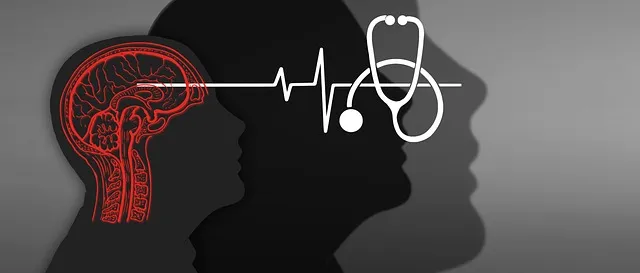Crisis Intervention Teams (CITs), trained through Kaiser Permanente mental health Louisville's comprehensive programs, are vital for swift and effective response to mental health emergencies in Louisville. Employing evidence-based techniques and integrating diverse professional backgrounds, CITs enhance accessibility to specialized care. Through interactive workshops, simulations, and mentorship, the program develops practical skills and emotional intelligence, fostering a supportive culture around mental health issues within the community. Tailored training equips individuals with strategies for recognizing warning signs, de-escalating situations, and applying mindfulness techniques, ultimately improving patient outcomes and staff self-care practices.
“Crisis Intervention Teams (CITs) play a pivotal role in delivering timely, effective support during mental health crises. This article delves into the significance of CIT training programs, using Kaiser Permanente Louisville’s innovative approach as a case study. We explore essential skills and components, highlighting their impact on real-world applications within the mental health landscape. By examining these programs, we aim to underscore the transformative power of training in enhancing patient outcomes at Kaiser Permanente Louisville.”
- Understanding Crisis Intervention Teams: A Key Component in Mental Health Care
- Kaiser Permanente Louisville's Approach to Training Programs
- Essential Skills and Components of Effective Crisis Intervention Training
- Benefits and Impact: Real-World Applications of Crisis Intervention Team Training
Understanding Crisis Intervention Teams: A Key Component in Mental Health Care

Crisis Intervention Teams (CITs) are a vital component in mental health care, particularly in communities like Louisville where access to specialized services is essential. These teams, often composed of trained professionals from various backgrounds, including medical, social work, and counseling, play a crucial role in providing immediate support during crises. The concept behind CITs is to offer rapid response to individuals experiencing severe emotional distress or mental health emergencies, thereby preventing escalations that could lead to hospitalization or worse.
In the context of Kaiser Permanente mental health services in Louisville, these teams are designed to enhance community outreach and support. The Mental Health Education Programs Design emphasizes evidence-based practices for crisis intervention, ensuring that team members are equipped with the skills to de-escalate situations and facilitate emotional healing processes. By integrating CITs into the local healthcare infrastructure, communities like Louisville can foster a more responsive and accessible mental health care system.
Kaiser Permanente Louisville's Approach to Training Programs

Kaiser Permanente Louisville takes a comprehensive approach to crisis intervention team training programs, prioritizing both practical skills development and fostering a culture of mental health support within their organization. Their program incorporates a blend of interactive workshops, real-life scenario simulations, and ongoing mentorship to equip employees with effective strategies for responding to crises. The focus is not just on technical proficiency but also on enhancing emotional intelligence and promoting positive thinking among team members, ensuring they can provide empathetic and compassionate support during challenging situations.
Through these training initiatives, Kaiser Permanente Louisville aims to create a network of resilient crisis intervention teams capable of managing a range of mental health crises. They also emphasize the importance of public awareness campaigns development as an integral part of their strategy, seeking to broaden understanding and reduce stigma surrounding mental health issues within the community they serve.
Essential Skills and Components of Effective Crisis Intervention Training

Effective crisis intervention team training programs are crucial for organizations like Kaiser Permanente mental health Louisville to foster a supportive environment. The essential skills and components involve empowering individuals with the ability to recognize early warning signs of a crisis, de-escalate high-stress situations through active listening, and apply evidence-based techniques such as mindfulness meditation and resilience building. These programs also emphasize the importance of coping skills development, ensuring team members can offer practical support while maintaining their own emotional well-being.
Training should equip participants with strategies to connect individuals in crisis with appropriate resources, promote self-care practices, and create a culture where everyone feels equipped to handle challenging situations. By integrating mindfulness meditation into the curriculum, teams learn to remain calm under pressure, enhancing their overall effectiveness during critical moments. Ultimately, comprehensive training equips crisis interventionists with the tools needed to make a meaningful difference in the lives of those facing mental health crises.
Benefits and Impact: Real-World Applications of Crisis Intervention Team Training

Crisis Intervention Team (CIT) training programs have proven to be invaluable in equipping individuals with the skills to handle and de-escalate crisis situations, particularly in mental health settings. The impact of this training is evident in real-world applications, as demonstrated by successful implementations at organizations like Kaiser Permanente in Louisville. By fostering a culture of support and understanding, CIT teams are revolutionizing the way mental health professionals approach high-risk scenarios.
These programs not only enhance self-care practices among staff but also improve patient outcomes. Through comprehensive training, team members learn effective risk assessment strategies, trauma support services, and de-escalation techniques. As a result, they become better equipped to handle crises, reduce harm, and provide timely interventions, ultimately reflecting positively on the overall mental health care system.
Crisis intervention team (CIT) training programs, such as those offered by Kaiser Permanente Louisville, are vital components in enhancing mental health care. By equipping professionals with essential skills and knowledge, these programs ensure effective crisis management in diverse settings. The benefits of CIT training extend beyond the classroom, translating into improved patient outcomes and enhanced community well-being in Louisville and across mental health care domains.






